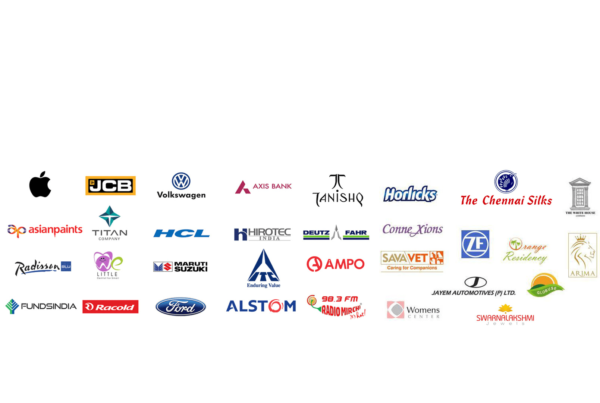Understanding the Basics of Event Planning
Event planning basics is an intricate process that involves organizing and coordinating various elements to create a seamless and memorable experience. The primary objectives and goals of event planning basics revolve around understanding the purpose of the event, identifying the target audience, and setting clear, achievable objectives. These foundational elements in event planning basics are critical in ensuring the event’s success and relevance to its attendees.
Defining the purpose of the event is the first and most crucial step. Whether it’s a corporate event, social gathering, or non-profit fundraiser, understanding why the event is being held provides direction and focus. For instance, a corporate event might aim to strengthen team bonds, launch a new product, or foster networking opportunities. Social gatherings, such as weddings or birthday parties, focus on celebrating personal milestones and creating lasting memories. Non-profit fundraisers, on the other hand, aim to raise awareness and funds for a cause, requiring a different approach to engagement and promotion.
Equally important is understanding the target audience. Knowing who the attendees will be allows planners to tailor the event to meet their needs and expectations. This involves considering their demographics, interests, and preferences, which can influence decisions on the venue, catering, entertainment, and overall event theme. For example, a tech conference would likely attract a different crowd than a charity gala, necessitating distinct planning strategies and logistics.
key aspect of successful event planning
Setting clear, achievable objectives is another key aspect of successful event planning. Objectives provide measurable goals that help to stay focused and motivated throughout the planning process. These can include specific attendance numbers, fundraising targets, or levels of social media engagement. Clear objectives also facilitate evaluating the event’s success post-execution, providing valuable insights for future planning endeavors.
The types of events one might plan are diverse, each with unique considerations. Corporate events often require a professional atmosphere with a focus on branding and networking. Social gatherings prioritize personal touches and guest experience. Non-profit events need to balance entertainment with effective messaging and fundraising strategies. Recognizing these differences allows planners to address the specific needs and challenges each event type presents.
In essence, understanding the basics of event planning is about thorough preparation and attention to detail. By clearly defining the event’s purpose, understanding the audience, and setting achievable objectives, planners can create meaningful and impactful events that resonate with their intended audience.
Essential Steps in the Event Planning Process
Event planning begins with a crucial phase of brainstorming and conceptualization. This is where the vision for the event is formed, setting the foundation for all subsequent steps. During this phase, it is essential to define the event’s objectives, target audience, and key messages. Creating a clear concept helps streamline the planning process and ensures alignment with the event’s goals.
Once the initial concept is established, the next step is to develop a detailed event plan and timeline. This comprehensive plan should outline all tasks and milestones, assigning specific responsibilities to team members. Utilizing project management tools can facilitate the organization and tracking of these tasks, ensuring that nothing is overlooked.
Budgeting and resource allocation are critical components of event planning. Establishing a realistic budget requires careful consideration of all potential expenses, including venue costs, catering, entertainment, marketing, and contingency funds. It’s important to allocate resources efficiently, ensuring that high-priority items are adequately funded without compromising other essential aspects of the event.
Pivotal step in the event planning
Venue selection is another pivotal step in the event planning basics. The chosen venue should align with the event’s theme, accommodate the expected number of attendees, and provide the necessary facilities and amenities. When evaluating potential venues, consider factors such as location, accessibility, and cost. Securing a venue well in advance is advisable, as popular locations tend to book up quickly.
Vendor coordination involves liaising with various service providers, such as caterers, decorators, audio-visual technicians, and entertainment professionals. Building strong relationships with reliable vendors can enhance the quality of the event and reduce the likelihood of last-minute issues. Clear communication and detailed contracts are essential to ensure that all parties understand their responsibilities and deliverables.
Contingency planning and risk management
Contingency planning and risk management are vital in preparing for unforeseen challenges. Identifying potential risks, such as weather disruptions, technical failures, or supplier issues, allows for the development of contingency plans. Having backup strategies in place can mitigate the impact of these challenges and ensure the event runs smoothly, even when unexpected issues arise.
By following these essential steps, beginners can navigate the complexities of event planning with greater confidence, creating successful and memorable events.
Effective Marketing and Promotion Strategies
Marketing and promotion are essential components of successful event planning. To ensure your event garners the attention it deserves, leveraging a blend of various marketing channels and techniques is crucial. By effectively utilizing social media platforms, email campaigns, and traditional media, you can create a buzz and attract a larger audience.
Social media is an indispensable tool for event marketing. Platforms like Facebook, Instagram, and Twitter allow you to reach a broad audience quickly and cost-effectively. Create engaging posts, use relevant hashtags, and consider paid advertisements to maximize your reach. Collaborate with influencers or industry leaders to amplify your message and generate more interest. Additionally, creating event pages or groups can help foster a sense of community and engagement among potential attendees.
Email campaigns are another powerful method to promote your event planning basics. Craft personalized and compelling emails that highlight the key aspects of your event, such as speakers, activities, and unique selling points. Segment your email list to target specific demographics and increase the relevance of your messages helping exponential reach for event planning basics . Regular updates and reminders can keep your audience informed and excited as the event date approaches.
publicity of the event
Traditional media, including press releases, print advertisements, and radio spots, can also play a vital role in your marketing strategy. While these methods may require a larger budget, they can help you reach a diverse audience and lend credibility to your event. Establishing relationships with local media outlets can result in valuable coverage and publicity of the event planning basics.
Creating compelling promotional materials is essential for capturing attention. Use eye-catching designs, clear messaging, and strong calls to action. Videos, infographics, and high-quality images can enhance your promotional efforts and make your content more shareable.
Leveraging partnerships and sponsorships can significantly boost your event’s visibility. Collaborate with organizations or businesses that share a similar target audience. These partnerships can offer mutual benefits, such as cross-promotion and shared resources. Sponsors can provide financial support and additional marketing channels to promote your event.
Target audience
Engaging with your target audience is crucial for generating excitement. Use interactive content, such as polls, contests, and giveaways, to involve your audience and create a sense of anticipation. Respond to comments and messages promptly to build relationships and foster a positive reputation.
Finally, tracking and measuring the effectiveness of your marketing efforts is vital for continuous improvement. Utilize analytics tools to monitor engagement, track conversions, and identify successful strategies. Adjust your approach based on data insights to optimize future campaigns.
With these strategies, beginners can effectively promote their events, attract attendees, and ensure a successful outcome.
On-the-Day Management and Post-Event Evaluation
Event planning basics is a critical component of successful event planning. To ensure smooth execution, it is essential to have a detailed schedule outlining every segment of the event. This schedule should include time slots for setting up, the main activities, breaks, and dismantling. Providing a clear timeline helps all involved parties understand their responsibilities and stay on track.
Delegating tasks to team members is another fundamental aspect. Assign specific roles to staff, vendors, and volunteers to prevent confusion and overlap of duties. Clear delegation ensures that each person knows exactly what is expected of them, facilitating a more organized and efficient event day.
Effective communication and coordination among all parties involved cannot be overstated. Regular check-ins and updates are crucial to ensuring everyone is on the same page. Utilize communication tools such as walkie-talkies, mobile apps, or messaging groups to maintain constant contact. This helps in addressing any issues promptly and maintaining a cohesive workflow in event planning basics.
Technical difficulties
Handling last-minute issues is an inevitable part of event management. To mitigate potential problems, prepare a contingency plan addressing common challenges such as technical difficulties, no-shows, or adverse weather conditions. Equip your team with the necessary resources and training to handle these situations calmly and efficiently.
After the event concludes, conducting a post-event evaluation is vital for continuous improvement. Gather feedback from attendees through surveys or feedback forms to gain insights into their experiences. Review the event’s performance against the set objectives to identify areas of success and those needing improvement moreover , This evaluation process should include a debriefing session with your team to discuss what went well and what could be enhanced for future events.
In the event planning basics , by focusing on detailed planning, clear communication, and thorough post-event analysis, beginners can effectively manage event day operations and continuously refine their event planning skills.
Looking for corporate event managers for your event? Then call us!
Learn more about Orange Stall Fabrication and Designing







